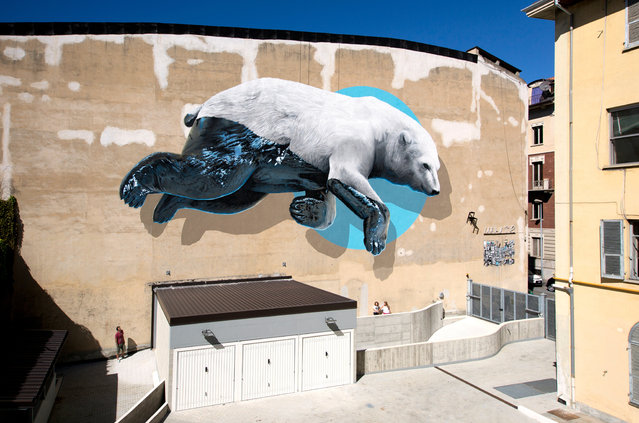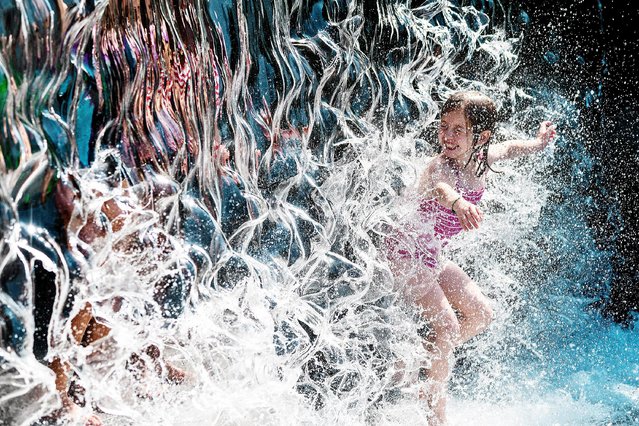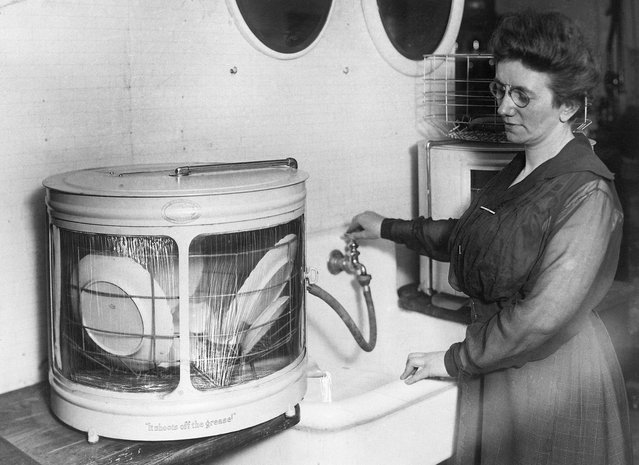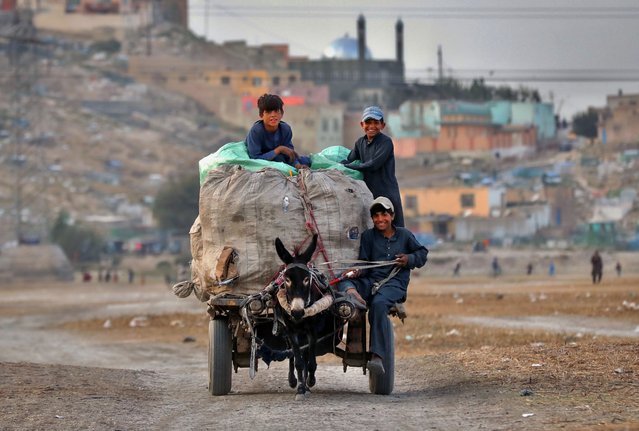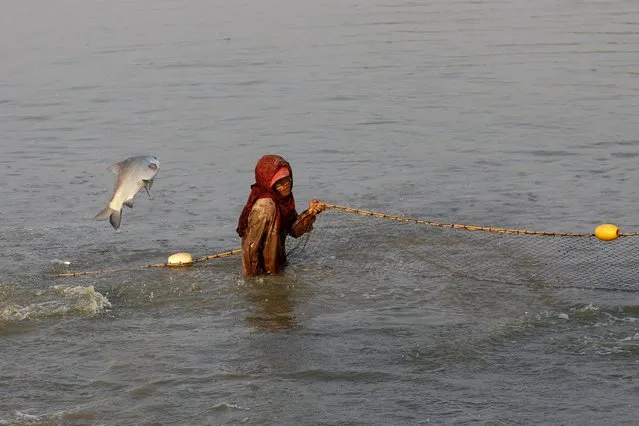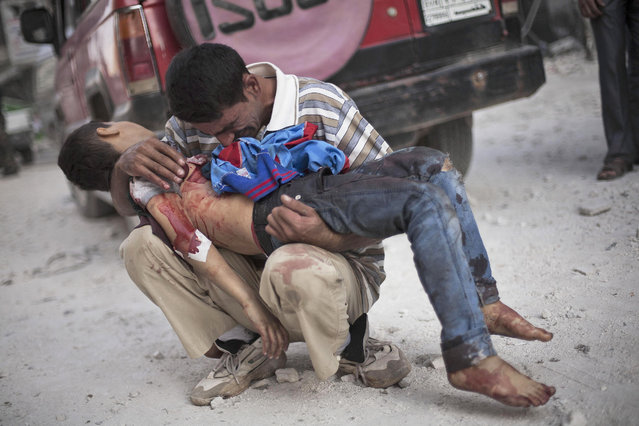
An employee in protective gears sprays disinfectant at the main exhibition tank at the Sea World at Jaya Ancol Dream Park as it is closed for public in the wake of coronavirus outbreak in Jakarta, Indonesia, Saturday, March 14, 2020. Indonesia's capital city announced a lockdown of all tourist destinations and entertainment spots as well as the closing all of its public schools for the next 14 days amid the global outbreak. For most people, the new coronavirus causes only mild or moderate symptoms. For some it can cause more severe illness. (Photo by Dita Alangkara/AP Photo)
18 Apr 2020 00:01:00,post received
0 comments

